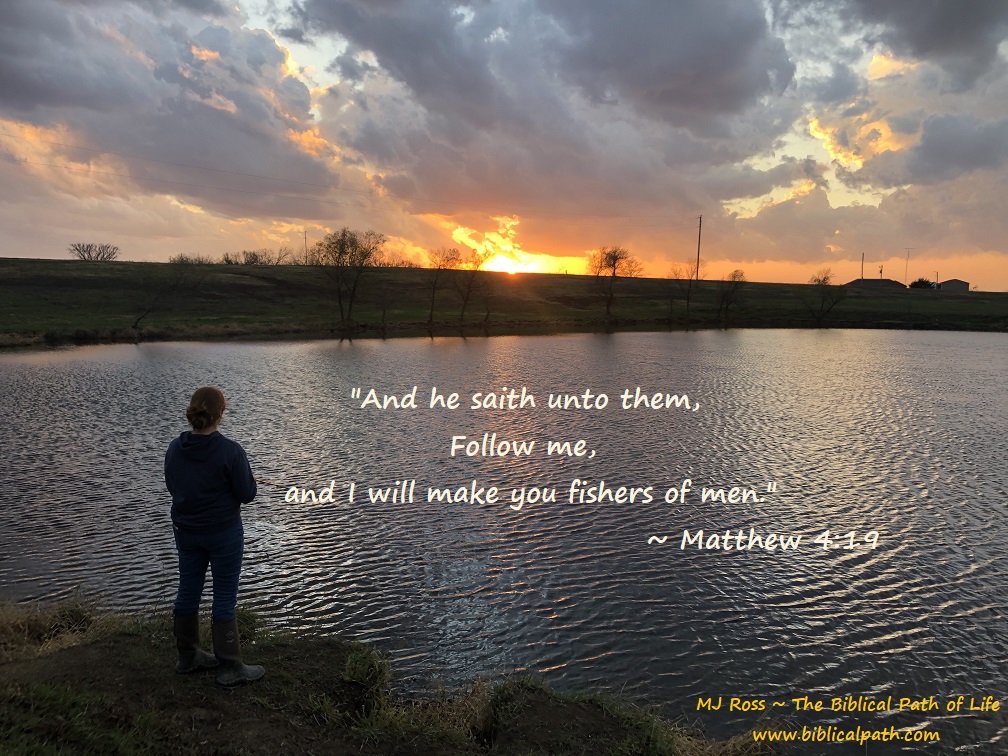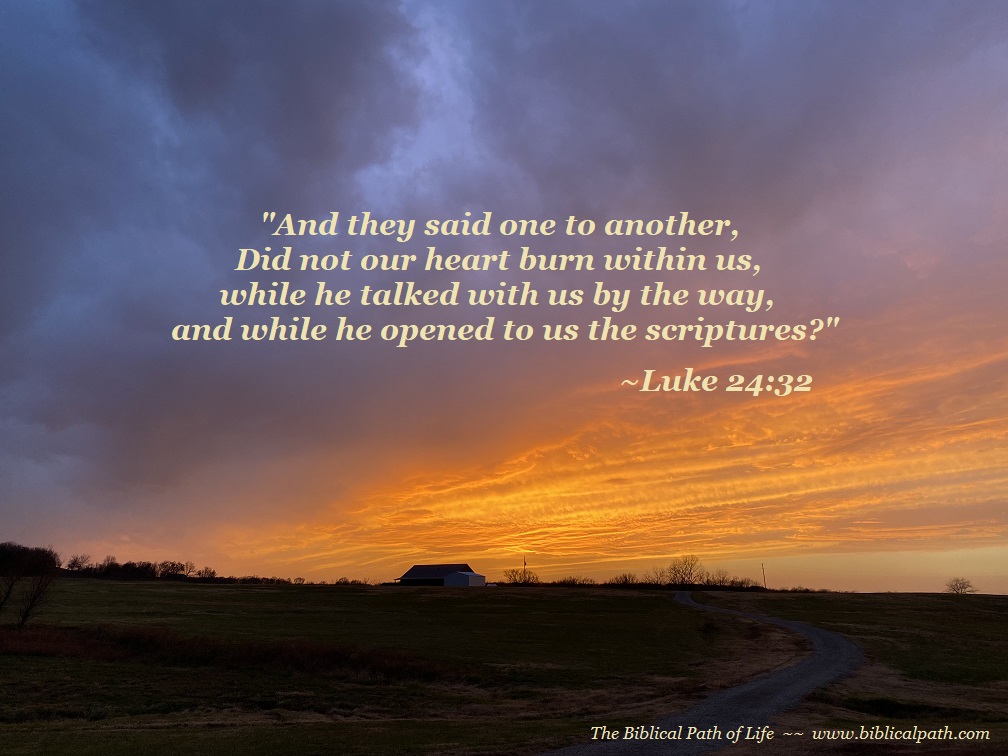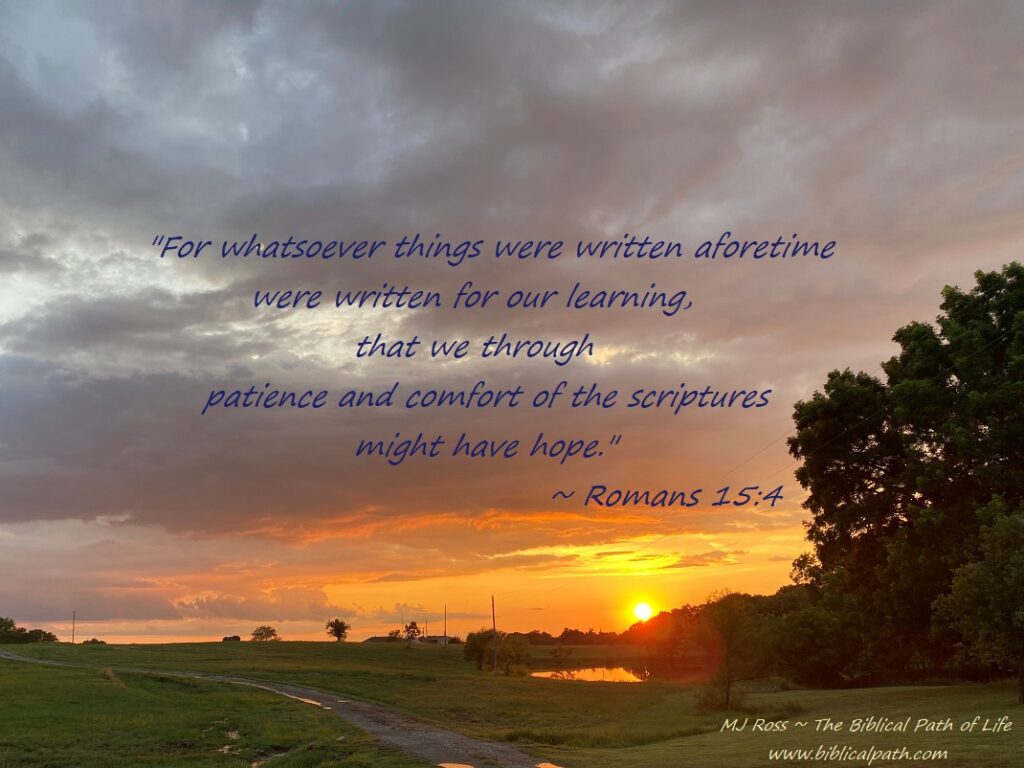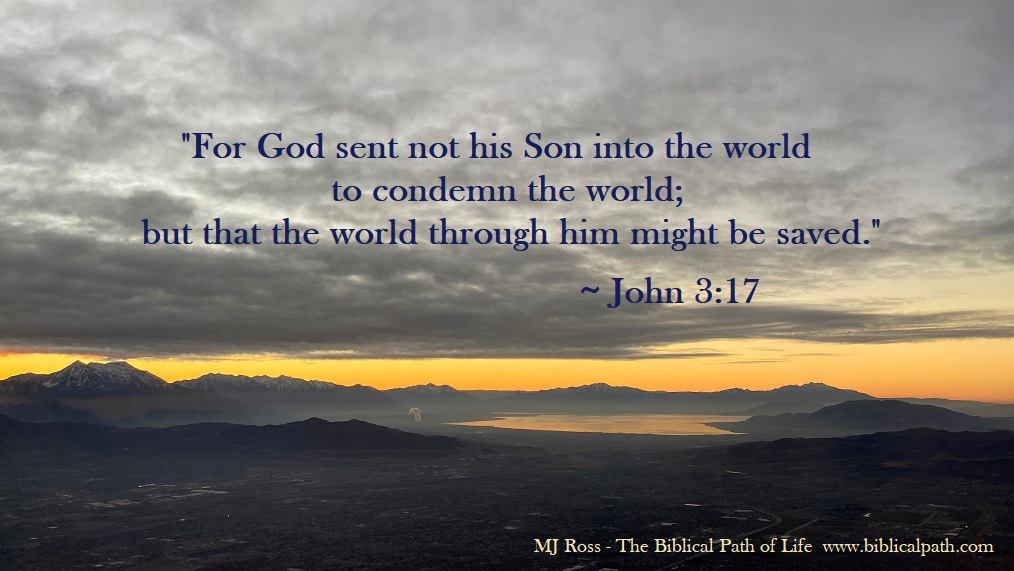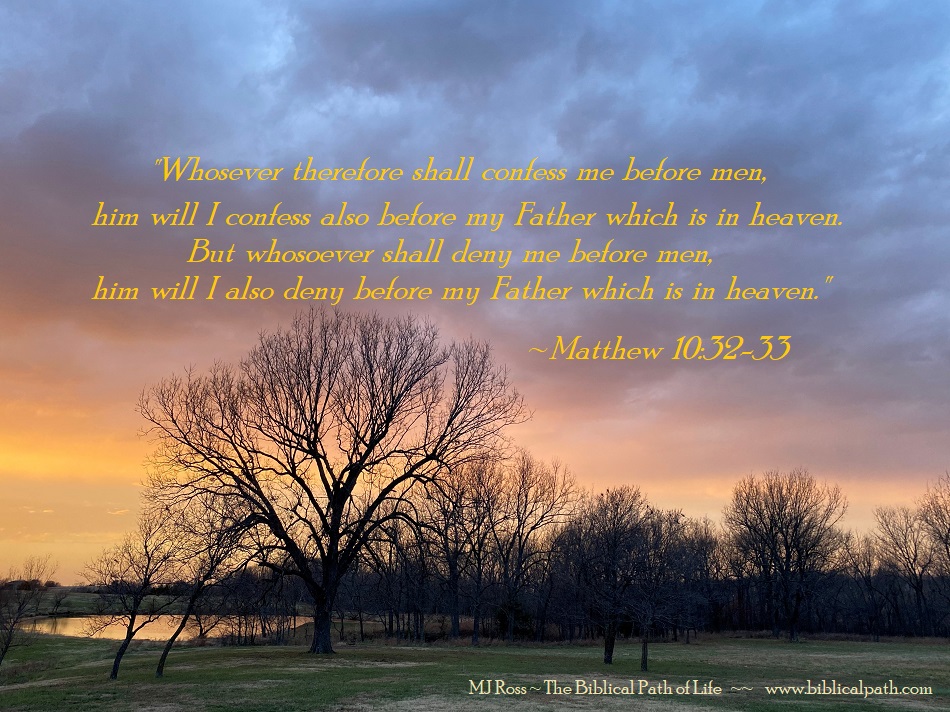
Matthew 10:32-33
As you read the Gospels (Matthew, Mark, Luke, and John), you learn of Jesus’ Teachings. More than that, as you read of Jesus’ Miracles, one can see the compassion of Jesus and the call to faith – to believe in Jesus. In Jesus’ Parables, He specifically wanted to teach His followers about heavenly things. However, more than that, in those parables, there was another call for a time of decision – to follow Jesus and His teachings, or to refuse them and thereby reject Him.
But did all believe? “But though he had done so many miracles before them, yet they believed not on him” (John 12:37). Many did not believe though they saw many great miracles. Often times, those who did believe were afraid to admit that belief in Jesus. “42. Nevertheless among the chief rulers also many believed on him; but because of the Pharisees they did not confess him, lest they should be put out of the synagogue: 43. For they loved the praise of men more than the praise of God” (John 12:42-43). Notice the reason those who believed because of Jesus’ words but were hesitant to admit that belief. They were afraid of their “friends” or “colleagues,” the Pharisees. It is important to recognize that no one should be afraid to acknowledge their belief in Jesus – no matter what one’s friends might say. (Remember what Jesus said in the book of Matthew. “32. Whosoever therefore shall confess me before men, him will I confess also before my Father which is in heaven. 33. But whosoever shall deny me before men, him will I also deny before my Father which is in heaven” Matthew 10:32-33.)
See how Jesus responded to the lack of any of the chief rulers to confess. (Confess “means to agree with; confess publicly, acknowledge openly; profess ‘the Lord being Jesus.’”) As you continue reading, see that Jesus cried out. One can almost sense His frustration in consistently declaring the truth, yet the refusal of most to act upon it. “44. Jesus cried and said, He that believeth on me, believeth not on me, but on him that sent me. 45. And he that seeth me seeth him that sent me. 46. I am come a light into the world, that whosoever believeth on me should not abide in darkness. 47. And if any man hear my words, and believe not, I judge him not: for I came not to judge the world, but to save the world” (John 12:44-47). Understand that Jesus directed the people’s attention to God. When the people saw Jesus, they were in fact seeing God – for Jesus had come to the earth to be revealed to mankind, as the “light into the world” for He had the words of life – if only one would hear them. However, if one refused, read what He declared. “48. He that rejecteth me, and receiveth not my words, hath one that judgeth him: the word that I have spoken, the same shall judge him in the last day. 49. For I have not spoken of myself; but the Father which sent me, he gave me a commandment, what I should say, and what I should speak. 50. And I know that his commandment is life everlasting: whatsoever I speak therefore, even as the Father said unto me, so I speak” (John 12:48-50).
God knew their hearts. If they rejected Jesus, God would judge them one day. Notice that Jesus declared that He spoke the words of God to the people.
The following is a great example of one who heard of Jesus, went to see Him, and openly believed. We can read of this man, named Zacchaeus. Most people remember the children’s song that tells of him. And it is quite accurate with what the Bible teaches us. Jesus was passing through Jericho. “And, behold, there was a man named Zacchaeus, which was the chief among the publicans, and he was rich” (Luke 19:2). He was a short man who could not see Jesus as He passed because of the crowd. So, “he climbed up in a sycamore tree for the Lord he wanted to see. And as the Saviour passed that way, He looked up in that tree, and He said, ‘Zacchaeus, you come down. For I’m going to your house today.’” Jesus went to his house, and Zacchaeus believed in Jesus. We understand this because Jesus declared, “This day is salvation come to this house …” (Luke 19:9b). Jesus added something very important for all to remember. “For the Son of man is come to seek and to save that which was lost” (Luke 19:10). Remember that this is why Jesus came into the world.
Have you openly believed in Jesus, or are you like the religious leaders of Jesus’ day who were afraid?


